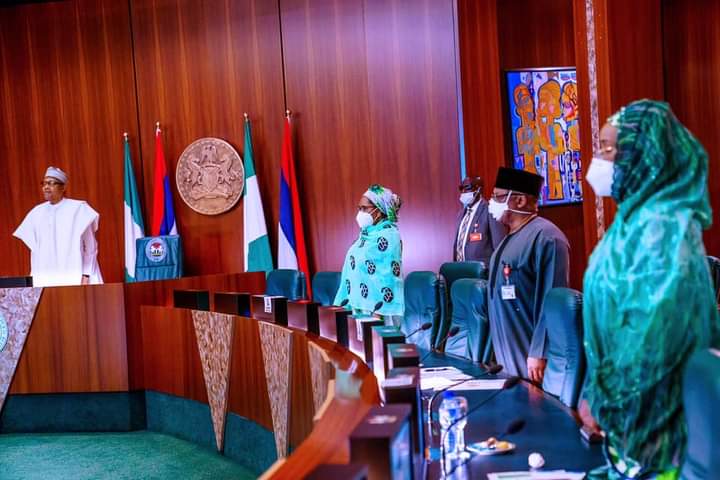There was a stalemate in talks between the Federal Government and organised labour regarding the recent increases in fuel and electricity tariffs held on Monday, signalling the possibility of a nationwide industrial action.
During the meeting held at the banquet hall of the Presidential villa in Abuja, the Minister of Labour and Employment, Chris Ngige urged stakeholders to deliberate on how Nigeria can survive the present economic realities imposed by the Coronavirus pandemic.
He described the meeting as a bilateral discussion between Government and Organised Labour to look at the factors that led to the hike in fuel and electricity prices as well as the present state of the economy.
See Also: PDP Commends Fresh US Visa Ban Imposed on Election Riggers
On his part, the Minister of State for Petroleum Resources, Timipre Sylva urged organised labour to show understanding towards government’s economic policies.
He said Nigeria lost N1 billion daily to subsidy between 2016 and 2019 and N3.74 billion daily before 2016.
“There are a lot of issues to discuss; from 10 o’clock we haven’t been able to trash out all the things; I think it will be right to set committees to further deliberate and resolve them,” he said.
The President of the Nigerian Labour Congress (NLC), Ayuba Wabba however rejected the position of government saying the increases have brought more hardship of Nigerians who are being forced to make sacrifices despite losing so much to the coronavirus pandemic.
“Those issues that constitute the price are part of the inefficiency in the system which the government hitherto has been paying and christened subsidy. The government cannot transfer the inefficiency to the people. Nigeria should refine its products,” the NLC chieftain said.
“At this point, what do you have on the table to cushion the effects on workers – their families because they have been pushed to the wall and already at the edge. Do you have anything for us? So that we can now say that despite these challenges, this is what I have for Nigerian workers that they can have something that can cushion this effect for them.”
“Already the value of minimum wage had been eroded. The purchasing power parity, when you compare with all West African countries, we are already on the ground.
“That is the reality. In Ghana, compare their minimum wage with our own; in all West Africa countries, including Niger Republic that has just started refining recently, they are now serving us with products. That is not how we ought to be.”
The meeting between both parties ended in a deadlock and no fresh date was set for a continuation.
Organised labour had vowed to embark on an industrial action over the hike in fuel and electricity prices but resolved to meet with the Government first.

